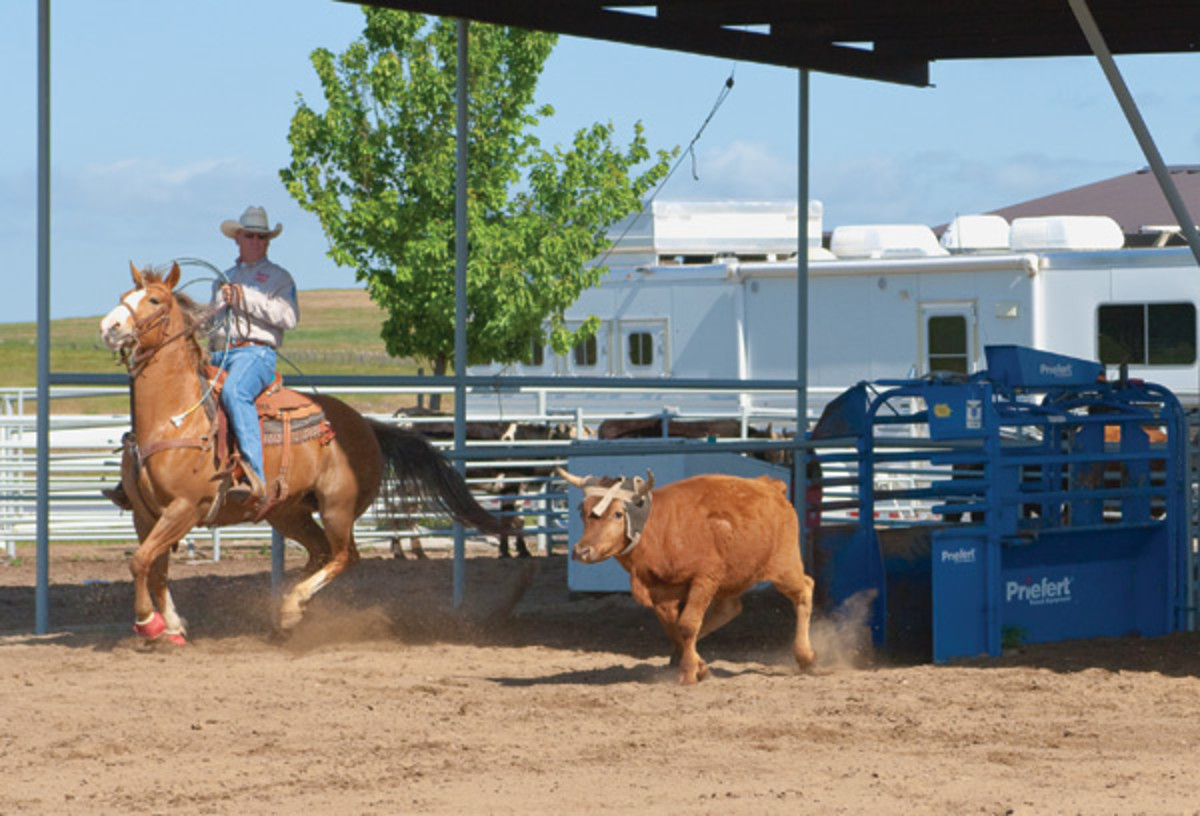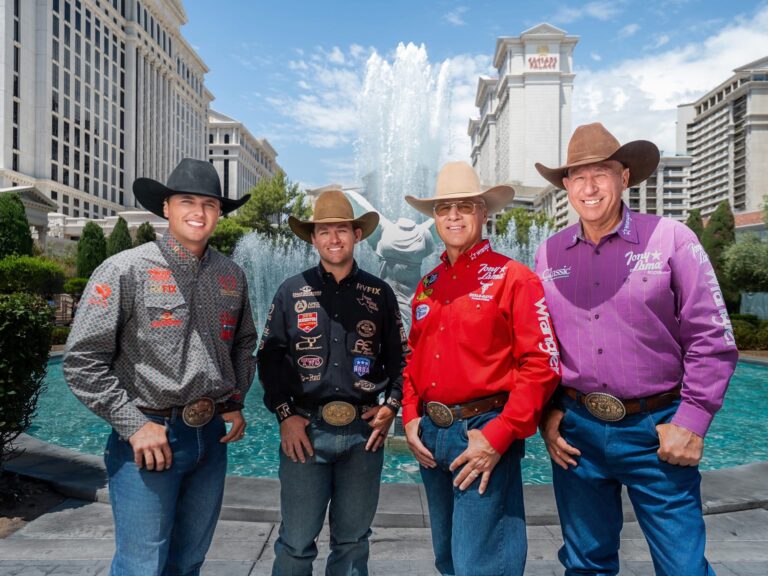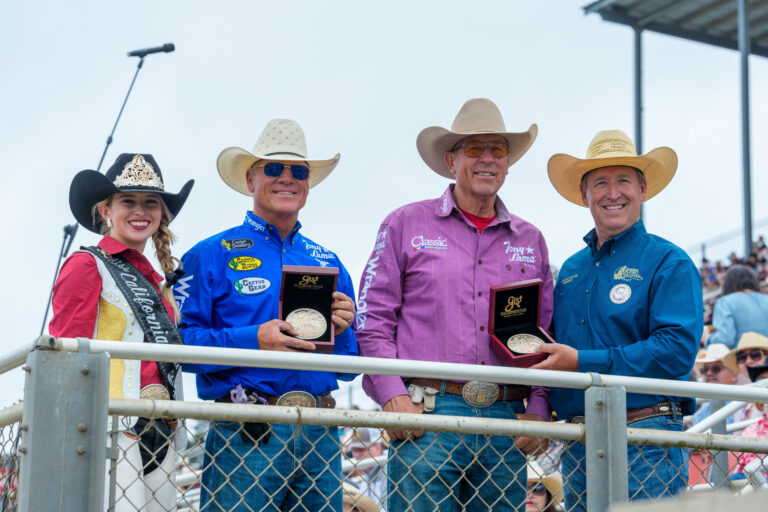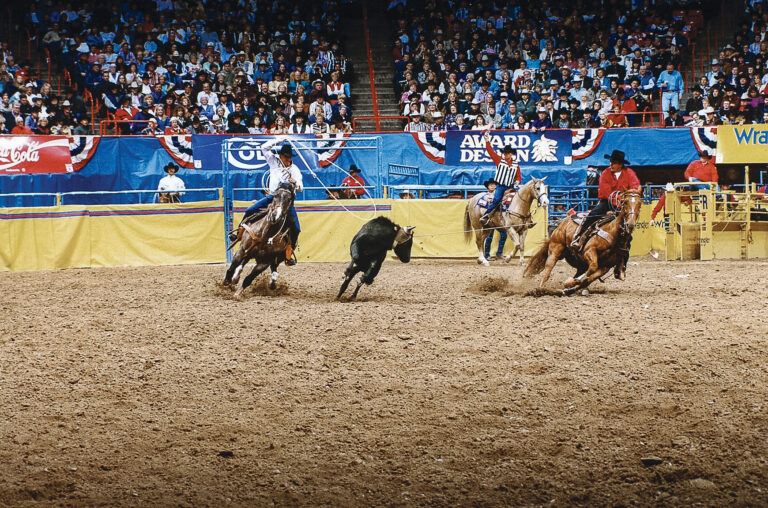
As a header, no matter what level you’re at, scoring is probably the toughest hurdle to get over. The start is so precise, and it makes you or breaks you. It’s not as crucial at a jackpot or over a long score as it is at a one-head rodeo. It’s do-or-die at a rodeo, where a few inches makes a big difference. And obviously, you can’t be one inch too early or you break the barrier. What haunts a lot of the open ropers is that you have to press so hard to have a chance to win. If you’re out late, you’re doomed. And if you’re out early, you’re doomed. A lot of guys have talent with a rope, but the difference at that top level comes down to your scoring.
Horsemanship is a huge factor in scoring, as is the horse you ride. The better your horse scores, the better you score, at any level of the game. Horses have a knack for scoring like people do. Some are just good at it. Throughout all the years I’ve roped, I can probably count on one hand the horses I’ve had that scored great. When you have a horse like that, it’s such an advantage that it’s almost like stealing.

I’ve talked about Mark Arnold’s Rebel, Charles Pogue’s Scooter and Bobby Hurley’s Spiff before. They were the three most phenomenal scoring horses I’ve ever seen. They had a knack for it, and their concentration was so good that you could ping that barrier almost every time on them, under any conditions.
When the score is short and it’s basically nod and ride, like at the (Wrangler) National Finals (Rodeo), your horse doesn’t have to stand there as long. You want a horse that wants to go get a quick start under those circumstances, where you’re basically taking a bulldogging start. Scoring is one of the fundamentals some ropers don’t practice. Big mistake.
When the score’s long, like at Salinas (Calif.), Cheyenne (Wyo.), the BFI (Bob Feist Invitational Team Roping Classic), or even the winter rodeos where it’s tail to the pin, that’s when the great horses really stand out. That’s where good scoring horses are worth their weight in gold. When you have a good steer drawn, you can’t have your horse take the bit and run through the barrier. If your horse reacts to the gates banging and leaks forward off the corner, you typically take ahold of him and pull at the line. When you do that, you don’t get a flat start. You pull your horse up off the ground, and it throws the timing of the run off terribly.

There are four different cues that tell your horse to go when you’re scoring. The first one is when you nod your head. You can watch videos, and when guys nod they typically take ahold of their horses. How that horse responds to that determines the start you get. The second is

the gates banging; the actual noise that makes. The next one is the movement of the steer, and the last one is the movement of the heel horse. It all happens in a split second, and it all triggers your horse to know it’s time to go. Roping’s fun, so a lot of time the last thing you want to do is score. You need to be in tune with your horse and do it when he needs it; don’t just score the last one. If I intend to rope a steer in the practice pen, and my horse cheats the start and reacts on his own judgment, I just pull him up. If he doesn’t respond to what I’m asking him to do, I change the plan and score that steer.
When all the top guys practice, they do everything they can think of to fake their horse out. There are so many tricks to use to try to get your horse to listen to your hand instead of the things they see and the noise. In the PRCA (Professional Rodeo Cowboys Association), you aren’t allowed to shake the back gate at the rodeos. You can do that at the jackpots. When you’re practicing, if you’re truly trying to get your horse to listen to you, you’ll bang the back gate, and have your heeler leave with the steer when you score one. Going in there and dropping the reins when you score one does no good, because you’ve already told that horse you aren’t going to go.








